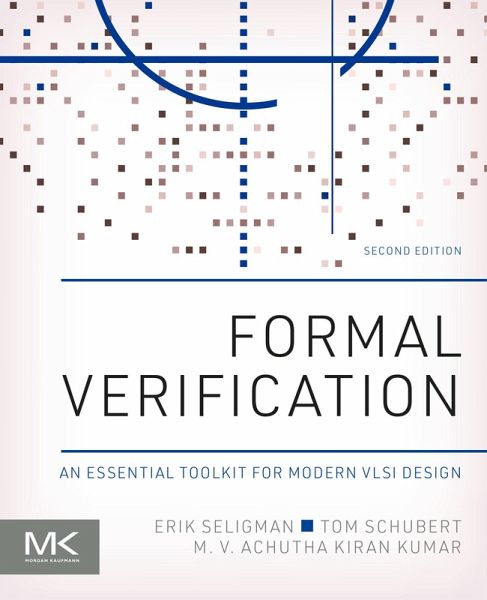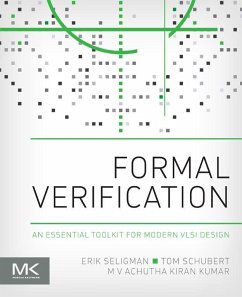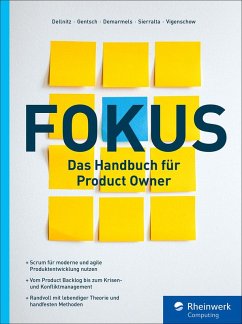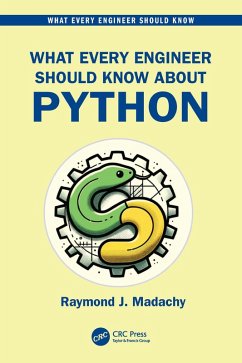
Formal Verification (eBook, ePUB)
An Essential Toolkit for Modern VLSI Design
Versandkostenfrei!
Sofort per Download lieferbar
73,95 €
inkl. MwSt.
Weitere Ausgaben:

PAYBACK Punkte
37 °P sammeln!
Formal Verification: An Essential Toolkit for Modern VLSI Design, Second Edition presents practical approaches for design and validation, with hands-on advice to help working engineers integrate these techniques into their work. Formal Verification (FV) enables a designer to directly analyze and mathematically explore the quality or other aspects of a Register Transfer Level (RTL) design without using simulations. This can reduce time spent validating designs and more quickly reach a final design for manufacturing. Building on a basic knowledge of SystemVerilog, this book demystifies FV and pr...
Formal Verification: An Essential Toolkit for Modern VLSI Design, Second Edition presents practical approaches for design and validation, with hands-on advice to help working engineers integrate these techniques into their work. Formal Verification (FV) enables a designer to directly analyze and mathematically explore the quality or other aspects of a Register Transfer Level (RTL) design without using simulations. This can reduce time spent validating designs and more quickly reach a final design for manufacturing. Building on a basic knowledge of SystemVerilog, this book demystifies FV and presents the practical applications that are bringing it into mainstream design and validation processes. Every chapter in the second edition has been updated to reflect evolving FV practices and advanced techniques. In addition, a new chapter, Formal Signoff on Real Projects, provides guidelines for implementing signoff quality FV, completely replacing some simulation tasks with significantly more productive FV methods. After reading this book, readers will be prepared to introduce FV in their organization to effectively deploy FV techniques that increase design and validation productivity. - Covers formal verification algorithms that help users gain full coverage without exhaustive simulation - Helps readers understand formal verification tools and how they differ from simulation tools - Shows how to create instant testbenches to gain insights into how models work and to find initial bugs - Presents insights from Intel insiders who share their hard-won knowledge and solutions to complex design problems
Dieser Download kann aus rechtlichen Gründen nur mit Rechnungsadresse in A, B, BG, CY, CZ, D, DK, EW, E, FIN, F, GR, HR, H, IRL, I, LT, L, LR, M, NL, PL, P, R, S, SLO, SK ausgeliefert werden.













